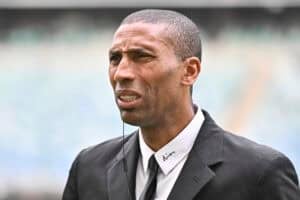Opposition figures had already rejected Saturday's ballot as a failure and called for a 'civilian transition' from Ouattara, provoking a warning from his ruling party against trying to stir up unrest.

Ivory Coast’s opposition leaders said Monday they were creating a “transitional government” after boycotting a weekend election in protest over President Alassane Ouattara’s bid for a contested third term.
The move deepened a crisis that erupted in August when Ouattara said he would run again, to the fury of the opposition who called it a constitutional breach and an “electoral coup” in the West African country.
The opposition announcement came as officials were tallying results from Saturday’s election with preliminary count showing Ouattara with a strong lead, as expected after the opposition boycott.
Pre-election clashes killed at least 30 and the opposition protests stoked fears of a repeat of the 2010-2011 crisis when 3,000 people died after then-president Laurent Gbagbo refused to accept defeat by Ouattara.
“The opposition parties and groups announce the creation of a council of national transition,” Pascal Affi N’Guessan told reporters. “This council’s mission will be to… create a transitional government within the next few hours.”
“The national transition council’s mission will be to prepare the framework for a fair, transparent and inclusive presidential election,” N’Guessan said.
“Keeping Mr Ouattara as head of state could lead to civil war,” he added.
There was no immediate response from the government over the opposition’s latest announcement.
Abidjan streets were mostly deserted late Monday night.
Activists and residents said shots or small detonations were fired outside the homes of two opposition leaders in the city, though no one was injured.
Opposition figures had already rejected Saturday’s ballot as a failure and called for a “civilian transition” from Ouattara, provoking a warning from his ruling party against trying to stir up unrest.
N’Guessan said the transitional council would be led by opposition veteran Henri Konan Bedie, 86, a former president and long-term adversary of Ouattara.
A former IMF economist, the Ivorian leader is praised by supporters for bringing infrastructure projects and economic growth after a decade of instability in the world’s top cocoa producer.
But the anger sparked by his third term has revived memories of past Ivorian feuds with roots even before a 2002 civil war split the country in two.
The tension in francophone West Africa’s top economy is another test for a region where Guinea is mired in a post-election dispute of its own, Nigeria is emerging from widespread unrest and Mali has faced a coup.
Election unrest
Pockets of unrest, some vandalised voting material and closed polling stations were reported mostly in opposition strongholds during Saturday’s election.
But rival factions gave conflicting accounts of the extent of the boycott. The government called them isolated.
Residents said four more people had been killed on Sunday in central Toumodi when houses were set ablaze in clashes between neighbouring ethnic communities who back rival political factions.
At least five people died in clashes on Saturday.
An African Union observer mission said on Monday that the election was “generally satisfactory” despite lack of consensus.
In contrast, US watchdog the Carter Center said “the overall context and process did not allow for a genuinely competitive election”.
“The process excluded a number of Ivorian political forces and was hampered by an active boycott,” it said in a statement issued with the South Africa-based Electoral Institute for Sustainable Democracy in Africa (EISA).
Ouattara, 78, had said after his second term he planned to make way for a new generation, but the sudden death of his chosen successor prompted him to seek a third term.
He says a constitutional court ruling approved his third term, allowing him to reset the country’s two-term presidential limit thanks to a 2016 reform.
When Ivory Coast emerged from the civil war after 2002, the country was split in two, the north held by rebels and the south by forces of then-president Gbagbo.
Ouattara won a long-postponed election in 2010 although Gbagbo refused to accept defeat. French forces eventually intervened to help Ouattara loyalists oust the former president.
For more news your way, download The Citizen’s app for iOS and Android.






